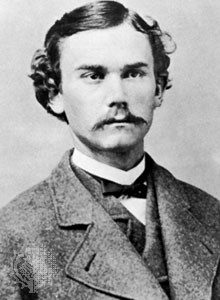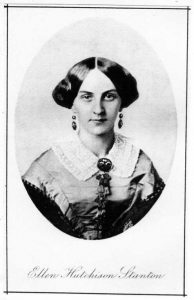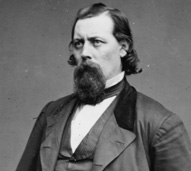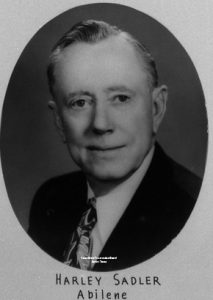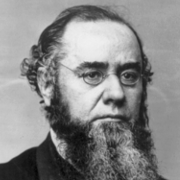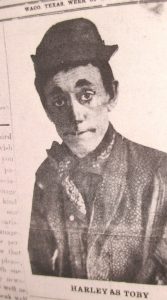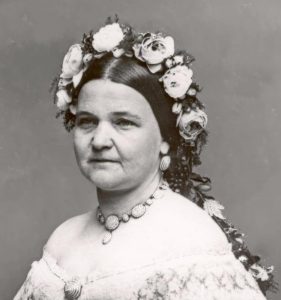Previously in the book: Nebraskan Hal Neely began his career touring with big bands and worked his way into the King records, producing rock and country songs. Along the way he worked with James Brown, the Godfather of soul.
(Author’s Note: Italics indicate passages from Neely’s memoirs)
It was evident to me that both the black R & B and “old” country (as we knew it) was changing. Our total self-contained business was in jeopardy. Syd and I disagreed on tactics. Motown changed the way independents did business. Berry Gordy Jr. and I were good friends. We talked about a merger. In 1964 King’s profits sunk. Syd and I disagreed.
“Hal, it’s my way or no way.”
Don Pierce’s Starday Records also changed. Don, a pioneer in country music, founded Starday. Don was not a musician but knew the business. He knew the Starday catalog and assembled most of the LPs. Don and I were both low handicap golfers and played whenever we could. We became very good friends. Don had a young man, not a musician, working for him as his assistant but he left to join a company in California. Don had a good staff and was aware of my problems with Syd so he offered me a good deal in July 1964–a minority interest in Starday if I would move to Nashville and become his vice president and chief operating officer. I would keep my King deal and still help Syd all I could. Syd and Don had always been good friends but not on the same wavelength. Starday worked through distributors and direct mail order, keeping a low profile.
My wife Mary did not want to leave Cincinnati and all her friends. Even so, she agreed. “Hal, if that is what you want, okay.”
We bought a small house Pierce had built out on Old Hickory Lake, close to where Faron Young, Roy Acuff, Roy Orbison, Johnny Cash, and a host of other country music stars lived. Starday’s “lake guest house” was close by me. Pierce had built, and now lived in, a big new house on the lake up the road from me. We jointly owned sixty acres on the lake called “Grasslands.”
Several of my key Cincinnati King people–Jim Wilson, Johnny Miller, Roy Emery, and Dan Quest– moved to Nashville Starday with me. Key Starday staff were Suzanne Mathis, sales, and her little sister Dorothy of accounting, Mrs. Casey in shipping, and Tommy Hill, producer.
Eventually Mary and I built a big ranch-style house on 80 acres of woods and pasture. We owned horses and cattle. James moved his office to Macon, Georgia, and built a beautiful estate across the river in South Carolina. He and I were still in business together, but he did his own thing. Surprisingly, James loved country music and several times in our early years came to our house to eat and listen to country music. He loved Mary because she taught him proper table manners. However, for the rest of his life he seldom ate in a restaurant. He picked at his food.
James Brown exploded in the marketplace. His shows sold out. He worked nonstop. This earned him the title “The Hardest Working Man In The Music Business.” In the beginning I often toured with James, running interference for him as his massive ego and unpredictable nature created problems.
By this time I had built an enviable reputation in the music entertainment business. Among my credits, awards, and industry service were being the Record Industry Association of America representative on the Copyright Act Tribunal, cofounding the Music City Pro-Celebrity Golf Tournament at the Woodland Hills Country Club and being the master of ceremonies at the “after golf” show. Participating in the tournament were Perry Como, Boots Randolph, Nashville Cats Band, Sam Snead, Jerry Reed, and other Nashville stars who enjoyed golf as a pastime. I wrote a series of technical music/productions/engineering articles for Popular Science magazine, Billboard, and other trade papers.
At Faron Young’s Christmas party in 1967, I was holding court and spouting off as usual. “What Nashville needs are some sharp young ladies in our business other than just secretaries.”
Standing in the back of the group was a 5’11” beauty in high heels.
“My name is Victoria Wise. I would like a job. When can I see you?”
My ass was hanging out. “Come see me the Monday after New Year’s.”
That whole holiday season was snow, snow and almost blizzard weather. That Monday, I had a Jeep with snow tires so I went into the office early as usual, knowing none of my people would probably come to work. My book did show a Victoria Wise in for an interview. I did not figure she would show up. About eight, a car pulled up out front and in waltzed Miss Wise who took off her coat and sat down in the lowest chair she could find, wearing the shortest shirt dress I had ever seen. She crossed those long, long beautiful legs. There wasn’t any place else I could look.
“Glad to see you. Nice of you to come out in this weather.”
She said she had a friend who had snow tires on her car and had brought her out. She was now sitting in the outer office. Victoria was one sharp, sharp lady. She had a good resume. A scholarship to Middle Tennessee State University, worked with Revlon out of New York as a beauty consultant traveling and teaching salespeople. She quit Revlon to move to Nashville where she was born and raised. She had family in Lawrenceburg. Currently working at the new Country Music Association Hall of Fame and Museum, she wanted a chance in the music industry. In high school she played clarinet and had been a drum majorette and she had some music knowledge.
She was very well-qualified and probably just the person I was looking for. We agreed on the terms and conditions. She wanted to do public relations and artist relations. She would report to me. We would build a special office for her on the second floor. I was due in Las Vegas, leaving Wednesday, to attend the James Brown show opening at Caesar’s Palace’s big room that weekend. I thought it was a good idea to take Victoria along to break her in.
But there were two problems. She still had her job and she had a boyfriend. Her job at the CMA would be no problem. I was now a vice president and director of CMA and her boss would be happy to see one of his girls get a chance. Victoria went into the next office, closed the door and talked to her boyfriend on the telephone. He was not happy with her deal. Even so, she came back into my office and said “Okay.”
My plan was that Jim Wilson—who had left King to join me in Nashville—Victoria, and I would leave on American Airlines Wednesday morning by the way of Cincinnati, to pick up Jim’s girlfriend and then fly on to Vegas. I had the premium guest suite at Caesar’s and rooms for my people. She and Jim’s girlfriend would share a room.
James Brown was the “hottest act in the industry”. He had hit after hit and sold out shows on tour. I had chartered a special flight from Hollywood to Vegas and my guests were Hedda Hopper, the Hollywood Reporter, Billboard, Variety and others. It would be a gala night. We held a preshow special James Brown reception in my suite.
Victoria was a little late getting to the reception, dressed in a beautiful short skirt, long legs, stunning. Wow. But I told her, “No way.” She was working. I sent her back to her room to change into something more businesslike. Victoria, in all the years to come, never forgave me.
Col. Parker, an old friend of mine and Elvis Presley’s manager, had a special personal booth directly in front of the stage. He was at James Brown’s opening reception and invited Victoria and me to be his guests in his booth for the show. I had not gone to that afternoon’s rehearsal. I knew the James Brown show by heart. It was basically the “Live at the Apollo Show” which I had produced. I had seen it many times.
Showtime. The curtain went up. I went into total shock. James Brown’s 12-piece band with Bobby Byrd and the girl singers were all staged out in front of a full 24-piece orchestra with its own conductor. The orchestra opened the show with “I Feel Good.” James came out on stage dressed in a black silk tuxedo and not his usual cape. He had good opening applause, and then not much of anything. He was “bombing.” James Brown had that pure instinct of a great performer, to improvise, and all of a sudden on “Fever,” the James Brown’s band took over from the big orchestra and were doing the Apollo show. The orchestra members were good Vegas musicians, could play anything so they picked up their James Brown version and joined in “jamming.”
I ran upstairs to the control room and called the lights and sound for an Apollo show. Thank God, all Vegas show room technicians are adaptable to emergencies. This was an emergency. The customers never knew what happened. They loved it! Soon some were up dancing in their chairs, others in the aisles. I had never seen such a show in the big room, even Elvis. My Hollywood guests were enthralled with the “Godfather of Soul.” After the show I took them backstage to meet and greet Mr. Brown. By this time James insisted on being addressed as Mr. Brown. The entourage loved him. He was at his best. The evening was a huge success.
The original contract was for two weeks; however, we all agreed to cut it to one week. The date was a success. It opened the door for me to book more of my artists, Redd Fox and the Wayne Cochran CC Riders band into a Caesar’s lounge for very early 4 a.m. shows.
James took his private plane to Hollywood to regroup. Bobby Byrd and the others followed on their bus. They had no trouble and booked into a Los Angeles club. Victoria and I went to Hollywood for a week of meetings. She took to her job and soon was pretty much her own boss when we got back to Nashville.
Next I went to London, and our sales hit bottom. We had no hits. I called Jim Wilson and said, “Jim, I’m stuck here for at least a week or so. You better cut back where ever you can and hold the fort ‘til I return.” This was the same old record business. “Hot today, cold tomorrow, hot again.”
First thing Jim did was to lay off some people. Victoria Wise was the last hired so she was the first to go. When I got back I called her. She was furious. She always did have a bad mouth and knew the words. She hung up on me. So be it. She had two weeks’ pay coming. Victoria’s girl roommate was one of my artists with some merit but had no hits yet. She was in the office, and I told her I had Victoria’s check, but she would have to come and get it.
Victoria came in. We made peace. But she had taken a job with her friend Ellen Tune as a bus tour guide of Nashville. She was good because she knew the stars, the gossip and Music Row. She was doing okay.
I was involved with the Beach Boys. Their manager, a bachelor, was in Nashville visiting me. He wanted to “go out and do the Strip.” I called Victoria and her friend to invite them to go out with us. We would pick them up about seven. That night began a complication: the girls went to the store and locked themselves out. They had to climb up the balcony to get in through a window. When we got there they were not yet dressed.
The plan was for Victoria to team up with Roger and sit in the back and Sarah and I would sit in the front. But Sarah jumped in back with Roger. Victoria had to sit in the front with me. That was the pattern for the night. We ended up at Boots Randolph’s club. It was a good fun night, though it was cold and wintry. Victoria and I found we had much in common.
Jim and I had to go to Cincinnati and would stay at a new inn close to King. Victoria knew all the Cincinnati people and hadn’t been there in a long time. I asked her if she would like to go, and she agreed. We got in late and went directly to the inn. My room was on the first floor in back facing the pool. Jim’s room was across the hall. About five in the morning the fire alarms went off. Jim Wilson was running up and down the hall knocking on all the doors yelling fire.
Smoke was coming under my door. Victoria and I soaked towels, packed them around the door, dressed in our sheepskins and cowboy hats and went outside. People on the second floor could only get their patio doors partially opened and were calling down to us. The smoke was billowing. The fire trucks arrived. There was more smoke and commotion than danger. A man on the first floor, across from me, had fallen asleep with a lighted cigarette. The first floor was cleared, and we went back to our rooms.
Mary and I still lived on the lake. She loved her house, her dogs, and her friends. Mary never went into town and hated the music business. We had drifted apart. Victoria and I started hanging out together. It just happened. She liked the clothes, the travel, and the music business. We liked many of the same things and had the same friends. Victoria was very independent; however, we were each still going our own way. She still worked with Ellen Tune and was doing very well.
